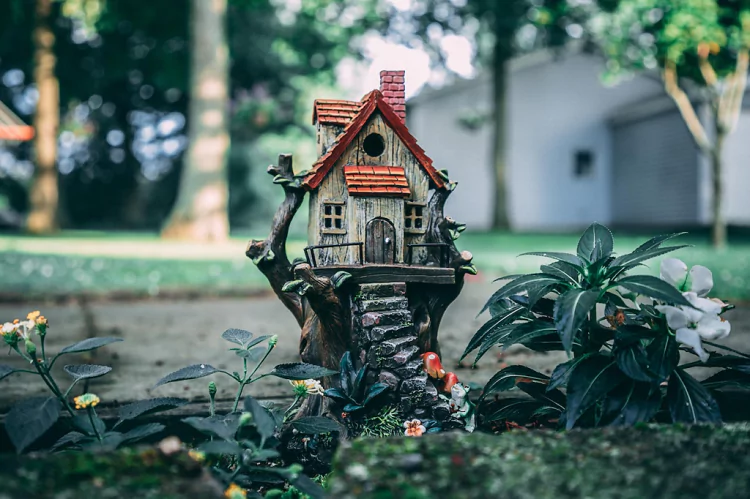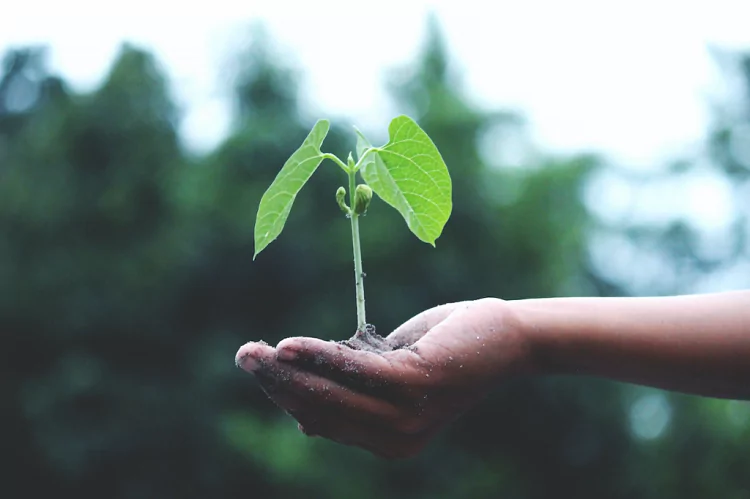
Photo by David Gonzales:
Sustainability is becoming increasingly important in every aspect of our lives. We now incorporate sustainability into many things we do to make the environment healthy and safe for us. If you have a short-term rental investment or are looking for ways to invest in real estate for passive income, sustainability is an important topic to pay attention to.
Short-term rental property owners have a unique opportunity to make a positive impact on the environment and make their properties appealing to eco-conscious guests. By implementing sustainable home improvement ideas, you can create an eco-friendly space that benefits the planet and enhances the overall guest experience. Here are some sustainable home improvement ideas for your short-term rental:
Sustainable Ideas to Improve Your Short-Term Rental Investment

Photo by Akil Mazumder:
Renewable Energy Sources (Energy-Efficient Upgrades)
Investing in energy-efficient renovations is one of the best ways to make your short-term rental more sustainable. Your HVAC system is one of the first things to consider. Upgrading to a high-efficiency HVAC system will minimize the amount of energy needed to heat and cool the room, lowering energy use and greenhouse gas emissions. Additionally, check the insulation levels of the rental home to prevent energy loss and maintain a cozy interior temperature.
The installation of programmable or smart thermostats is an additional improvement that saves energy and boosts your short-term rental investment. With the help of these gadgets, you can program precise temperature schedules that will minimize energy use when the property is empty and maximize comfort when visitors are present. Smart thermostats allow you to change the temperature even when you’re not present because they can be controlled remotely.
Water Conservation
Water conservation is another crucial aspect of sustainable home improvement. Start by replacing old and inefficient toilets with low-flow or dual-flush models. These toilets use significantly less water per flush, helping you conserve water without compromising functionality. Similarly, consider installing low-flow showerheads and bathroom faucets to reduce water usage without sacrificing the guest experience.
Outdoor water conservation is equally important. If your rental property has a garden or lawn, opt for native plants that require less water and are better adapted to the local climate. Install a drip irrigation system to deliver water directly to the plant roots, minimizing water waste through evaporation and runoff.
Eco-Friendly Materials and Furnishings
In addition to being sustainable, using eco-friendly materials and furnishings gives your vacation rental a distinctive appeal. Choose eco-friendly and repurposed materials while remodeling or redecorating the space. Look for flooring options produced from bamboo that has been harvested sustainably or from salvaged wood. These materials enhance your room’s natural beauty while being environmentally beneficial.
Consider buying neatly used or vintage furniture that is modern enough. This not only reduces waste but also gives your rental property personality. If you prefer new furniture, go for pieces made of sustainable materials or those that have earned certification from reputable eco-labels.
Recycling and Waste Management
Implementing an effective recycling and waste management system is crucial for promoting sustainability in your short-term rental. Provide clearly labeled recycling bins for guests to separate paper, plastic, glass, and metal waste. Educate your guests about the importance of recycling and the proper sorting of recyclable materials through informative signage.
In addition to recycling, encourage guests to minimize waste generation. Provide reusable shopping bags, water bottles, and coffee mugs for their stay. Consider partnering with local recycling facilities or composting centers to ensure that waste from your property is handled responsibly.
Energy-Efficient Lighting
The lighting greatly influences your vacation rental’s ambiance and functionality. You may reduce energy use and carbon footprint by switching to energy-efficient lighting solutions. LED (light-emitting diode) or CFL (compact fluorescent) bulbs should be used instead of conventional incandescent ones.
LED bulbs are a cost-efficient and environmentally friendly option because they use much less energy and have a longer lifespan. In addition to being energy-efficient, CFL bulbs can be used in a variety of settings all over your rental property.
Consider installing motion sensors or timers in common areas such as hallways, entryways, and outdoor spaces. These devices ensure that lights are only activated when needed, saving energy when rooms are unoccupied. Dimmer switches are another great addition, as they allow guests to adjust the brightness according to their preferences, reducing unnecessary energy consumption.
Smart Home Technology
Integrating smart home technology into your short-term rental can enhance sustainability and guest convenience. Smart thermostats, as mentioned earlier, optimize energy usage by adjusting the temperature based on occupancy and pre-set schedules. Smart lighting systems enable guests to control lights remotely or set automated programs, ensuring lights are never unnecessarily left on.
Additionally, smart locks provide guests with a secure and convenient way to access the rental property, eliminating the need for physical keys. Some smart locks even allow you to monitor and control access remotely, minimizing the risk of unauthorized entry and ensuring that energy-consuming appliances, such as air conditioning or heating, are not left running when the property is unoccupied.
Sustainable Landscaping
If your short-term rental property has outdoor spaces, sustainable landscaping can significantly contribute to its overall sustainability. Opt for native plants well-suited to the local climate, as they require less water and maintenance than non-native species. These plants have adapted to the region’s rainfall patterns and soil conditions, reducing the need for additional irrigation and fertilizers.
Using water-saving techniques in the garden, such as mulch to retain moisture, rain barrels to collect rainfall or drip irrigation, can further cut back on water usage. Create permeable surfaces in the landscape, such as permeable pavers or gravel, to allow rainwater to soak into the ground instead of causing runoff.
Green Cleaning Practices
Green cleaning techniques are a sustainable alternative when it comes to keeping your short-term rental clean. Traditional cleaning supplies frequently include harsh chemicals that can harm the environment and human health. While limiting detrimental effects on ecosystems, switching to eco-friendly cleaning supplies guarantees a safer and healthier living environment for your visitors.
Toxic-free, biodegradable, and environmentally friendly cleaning products should be sought out. Other eco-certifications, like Green Seal or EcoLogo, attest to the items’ compliance with high environmental requirements.
You can create cleaning products with basic components like vinegar, baking soda, and essential oils as substitutes. These organic substitutes work well, are inexpensive, and eliminate the need for hazardous chemicals in your rental home.
Educate and Engage Guests
Sustainable practices can significantly impact if you inform and involve your guests. Offer a welcome pamphlet or digital guide that tells visitors about the sustainable elements of your vacation rental and invites them to engage in eco-friendly behaviors. List any eco-friendly eateries, farmers’ markets, and tourist sites in the area that are nearby.
Consider offering reusable shopping bags, water bottles, or eco-friendly products as a symbol of sustainability. Clear instructions on correctly separating waste and labels for recycling bins should be provided. Reinforce the value of recycling, energy and water conservation, and other sustainable measures with educational signage placed all across the facility.
Conclusion
Incorporating sustainable home improvement ideas into your short-term rental benefits the environment and enhances the guest experience. From energy-efficient upgrades to eco-friendly materials and engaging guests in sustainable practices, these efforts contribute to a greener future while attracting eco-conscious travelers. Embrace sustainability and make a positive impact through your rental property.
